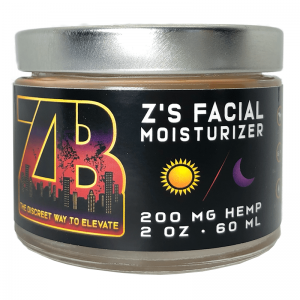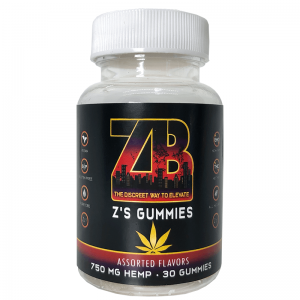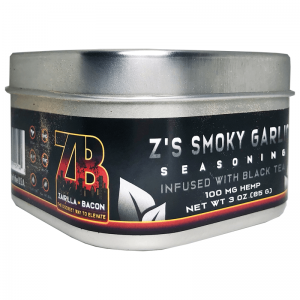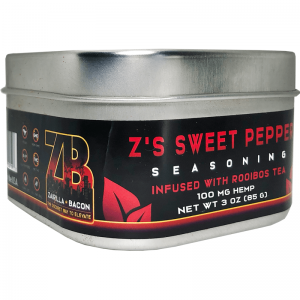What Is CBD & Who Can It Help?
JUST WHAT IS CBD?
WHO CAN BENEFIT FROM IT, AND WHAT’S ALL THE HYPE?
CBD (aka cannabidiol) has evolved from the mainstream second-most discussed element in Cannabis aside from THC to the most dominant newcomer in the marketplace, showing up in every product from oils and tinctures to face cream and gummies to hummus and your morning cup of tea or coffee.
Simply put, it’s EVERYWHERE.
What is CBD?
Along with its more infamous relative THC (tetrahydrocannabinol), CBD interacts with the body through a structure known as the endocannabinoid system.
The endocannabinoid system
ever newer research has shown that ECS receptors may also be found in the skin and reproductive system.
Most people do not know that humans are born with a built-in system that specifically interacts with
cannabinoids, but the ECS does a lot more than just play around with CBD and THC molecules.
The ECS is thought to play an important role in the reproductive system, as well as the regulation of
mood, appetite and memory (so it’s no wonder that cannabinoids like THC and CBD have a particular
effect on all those things).
Do You Get High on CBD?
What Are the Health Benefits?
Ways of taking CBD
While edibles and CBD beverages have been gaining more popularity recently, the most popular methods for
taking CBD include vaping, CBD capsules, CBD oil tinctures, and topical CBD like creams and balms.
Balms and Salves
Tinctures
We recommend having a Z Coffee, Z Tea or Z Juice beverage with your tincture.
Cream and Lotion
Vaping
Capsules
What Are the Different Types of CBD Oil?
So you’ve made up your mind, and you’re going to give CBD oil a shot – only to discover that you now have to
learn about what type of CBD oil you’re going to use, which can be daunting, to say the least. In reality, the
difference between the most common formulations of CBD oil – full-spectrum CBD, broad-spectrum CBD, and
CBD isolate – is actually pretty straight forward.

Full-spectrum CBD OIL
Contains all the naturally occurring cannabinoids and botanical compounds found in
the hemp plant, along with CBD. As such, full-spectrum CBD oil also contains a small amount of THC. While it’s
nowhere near enough to actually get you high, this small THC percentage may contribute to a phenomenon
known as the “entourage effect”, which proposes that CBD works better alongside all the other cannabinoids
and compounds found in hemp. Our products have less than .03% THC or Zero (0) THC. We recommend using
our CBD products along with your other THC products.

Broad-spectrum CBD oil
contains most other cannabinoids compounds, just with all traces of THC removed. This makes broad-spectrum CBD a popular choice. It also means that you can benefit from the entourage effect without worrying about THC.

Isolate
In contrast, CBD isolate is a powder extract that solely contains pure CBD, with all other cannabinoids and
botanical compounds removed. It can then be added to carrier oils to make CBD isolate oil. While you won’t
get the benefits of all the other cannabinoids, CBD isolate can contain much more potent levels of CBD – so if
you want a stronger CBD oil, isolate may be the best choice.
What Is an Extraction Method &
Why Is It Important?
You’ve probably heard the term Extraction and wanted to really understand the process. Simply put, an extraction method is the term used to describe how CBD is extracted from all the other cannabinoids and botanical compounds, to create CBD isolate. One of the most common methods is CO2 extraction, which involves using liquid CO2 to separate CBD from all the other plant compounds. This method of CO2 extraction is also used to decaffeinate coffee beans, and to create essential oils.
CBD isolate can also be extracted using ethanol. Alternatively, cold-pressing industrial hemp is one of the most common methods for creating organic, broad-spectrum and full-spectrum CBD oil.
Which Form of CBD Oil Is Best?
The boom in popularity of CBD products has been something of a blessing and a curse. With so many types of CBD oil on the market, you get more variety for consumers – but also the headache of deciding which one will work best for your needs.
- Finding which form of CBD oil is best for you may depend on a variety of factors.
▪ What you’re using it for
▪ Your budget
▪ The legality of THC in your area
If you live somewhere where THC is legal and regulated, then full-spectrum CBD is a great option. If keeping things as natural as possible is also a big deal-breaker for you, then full-spectrum CBD is probably the best choice as it undergoes the least amount of processing. If you prefer organic products but live somewhere where THC is not legal, then broad-spectrum CBD would be the best choice.
We know it can be confusing and we are always asked questions surrounding dosing and cures for ailments. Look we’d love to tell you what we really think, but due to regulations, no one currently has the authority to do so.
The FDA is very clear that CBD companies cannot make medical claims; however many do and they do that at their own risk ant the detriment to their customers. What we will say is that you must experiment with CBD and find your dosage and read as much literature on the subject as possible. We will always try to answer your questions.
If you’re curious and want to experiment with CBD for some of the properties which have been identified, then try a low-strength CBD oil made with broad or full-spectrum CBD. The lower percentage means you can test the waters and see how it affects you. CBD isolate may be a better option for anyone who wants a more potent dose of CBD. However, CBD isolate can also be considerably more expensive than broad-spectrum and full-spectrum products, since you’re paying for more of the active CBD.
How much CBD should I take?
As we said earlier, knowing how to dose your CBD is a personal situation, because there is no right answer. Much like your fingerprints, everyone’s endocannabinoid system is similar but totally unique – so how you react to a certain CBD product may differ from how your friend might react. Just as people who drink alcohol react very differently from one another, CBD is no different.
How Much I Understand the Milligrams per Serving?
Translating the strength listed on the bottle into how much you’ll be consuming, is just a matter of dividing the strength by how much oil is in the bottle. So, a 10-ml bottle of 500 mg of CBD, will give you 50 mg per 1 ml, which is usually one dropper full.
Where to Get CBD?
Why, from ZBacon.com of course!!
Seriously we want you to use our family of products but always look for brands that offer 3rd party tested lab reports
to verify the CBD and THC percentages in their products. As CBD has become increasingly mainstream, it’s everywhere and the cost varies. Remember you get what you pay for. After everything you have read about CBD, it is quite a process and this plant is magical?
It isn’t cheap nor should it be. How much is your health and well-being worth?
Disclaimers
This website is not intended to provide medical information and does not claim to cure or treat any disease. Always speak to your doctor about health concerns.
FDA Disclosure
* These statements have not been evaluated by the Food and Drug Administration. This product is not intended to diagnose, treat, cure, or prevent any disease.



